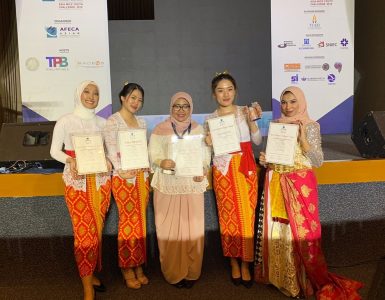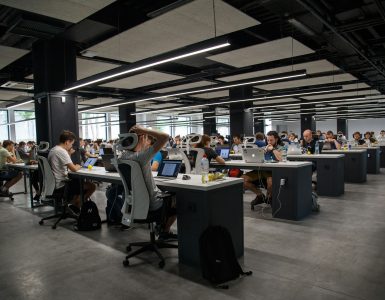Prasetiya Mulya Business School on 21st August 2014 hosted Global Scholar
Network Conference 2014 at the Grand Hyatt Hotel in Jakarta. An annual event held to
encourage discourse on topics relevant to Indonesia’s continued development,
the 2014 installment focused on Global Innovation and Entrepreneurship as a
main theme with particular attention paid to ‘building key capabilities for
emerging economies’.
In providing a forum to discuss topics related to this
field Prasetiya Mulya invited distinguished speakers from the foremost
academic institutions around the world. Via prepared presentations as well
as a question and answer panel session, these speakers delivered their
insights to an audience of business leaders from across the full spectrum of
Indonesian industries in addition to policy makers and fellow members of the
academic community.
Opening the event was Mr Jusuf Wanandi, Chairman of Prasetiya Mulya’s Board
of Advisors, who touched upon the importance of education in creating
entrepreneurs and the responsibility of business schools to foster the
spirit of business. Taking steps to create entrepreneurs, he explained,
would allow Indonesia to begin tackling the challenge of pursuing innovation
today.
Among the event’s esteemed invited speakers was Prof. Wong Poh Kam,
Professor at the National University of Singapore (NUS) Business School and
Director of the NUS Entrepreneurship Centre, who discussed in detail the
concept of creative imitation as a strategy to be used by latecomers in
catching up to the innovation frontier. Prof. Kam argued that emerging
economies are best served adapting existing technology to novel applications
and new industries; thereby following a ‘path-breaking’ strategy as opposed
to a ‘path-following’ one that confines latecomers to a permanent inferior
position to developed economies. Examples of this path-breaking approach
include Chinese electronics company Xiaomi, who emulated the Apple model for
mobile phones but did so with models offered at lower prices and better
suited to the Chinese market. Prof. Kam explained that there are many
opportunities for Indonesian companies to adapt existing technology in a
similar fashion to cater to emerging middle class consumers locally as well
as in Turkey and India.
Prof. Masanori Namba from Ritsumeikan Asia Pacific University in Japan
delved into similar concepts in his presentation on Incremental Radical
Innovation, or market-altering innovation pursued in stages. Pursuable by
SMEs, this strategy requires patience in allowing a small project to develop
the capacity to produce ‘global niche products’. Illustrating Prof. Namba’s
point is the steady rise of Toa Koki Co. Ltd. from a manufacturer of
potbelly stoves in 1945 to now dominating the global market for cylinder
liners for large scale ships.
Network event also presented a look into innovation as it relates
specifically to business schools. In a speech on the ‘Innovation Imperative’
faced by business schools Prof. Horacio M. Borromeo, Dean of the Asian
Institute of Management in the Philippines, presented challenges faced by
business schools such as the emergence of Massive Open Online Courses
(MOOCs) and rising competition for top students. Pursuing innovation in
learning experience and teaching structure, Prof. Borromeo explained, is one
way that business schools could stand out and provide value to students.

Korea; Associate Prof. Brent Ritchie from the University of Queensland
Business School in Australia; and Prof. Don R. Rahtz from the Mason School
of Business in the USA. Professor Djoko Wintoro as Dean of the Prasetiya
Mulya Business School presented his key insights into innovation within the
context of city development; expressing the view that Jakarta needs to take
steps to become an ‘Innovative and Prosperous Megacity’. In its current
state, the city trails far behind (348th) the leaders in a ranking of
contributions to world innovation.

The Global Scholar Network is part of Prasetiya Mulya Business School’s
tradition and is emblematic of its commitment to advancing business
knowledge and practice. The business school will continue the annual hosting
of this event to cement its status as a leading advocate for progress in
Indonesia, not only as it pertains to education but also industry
advancement.









Add comment